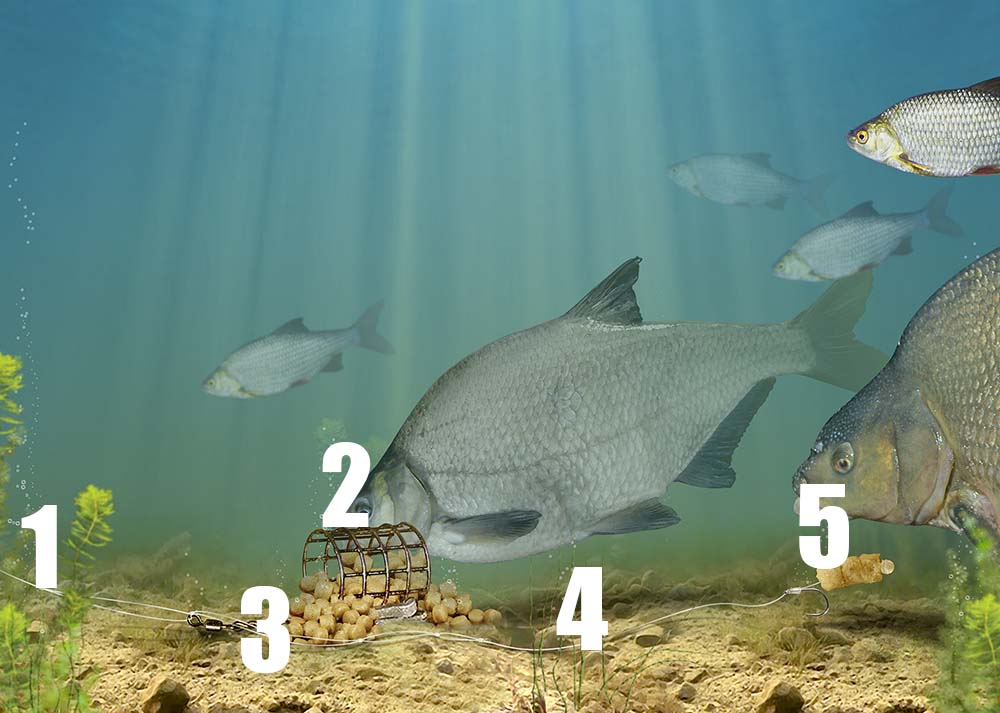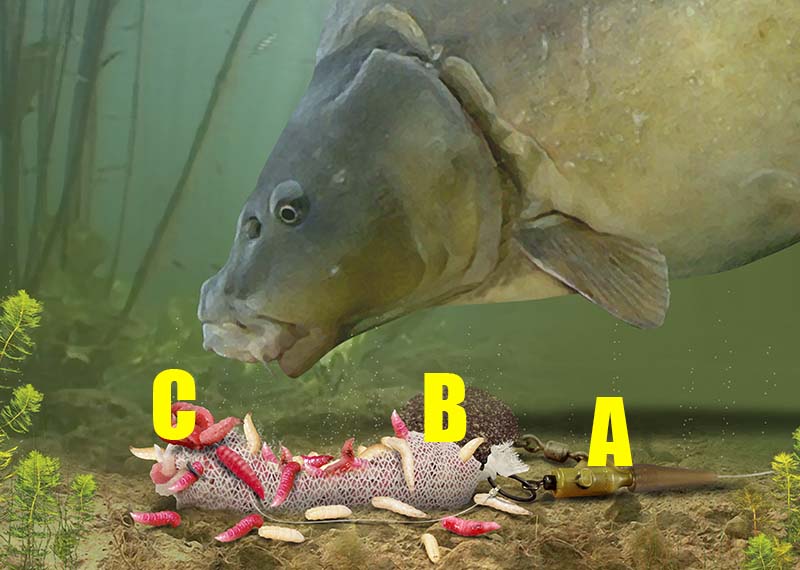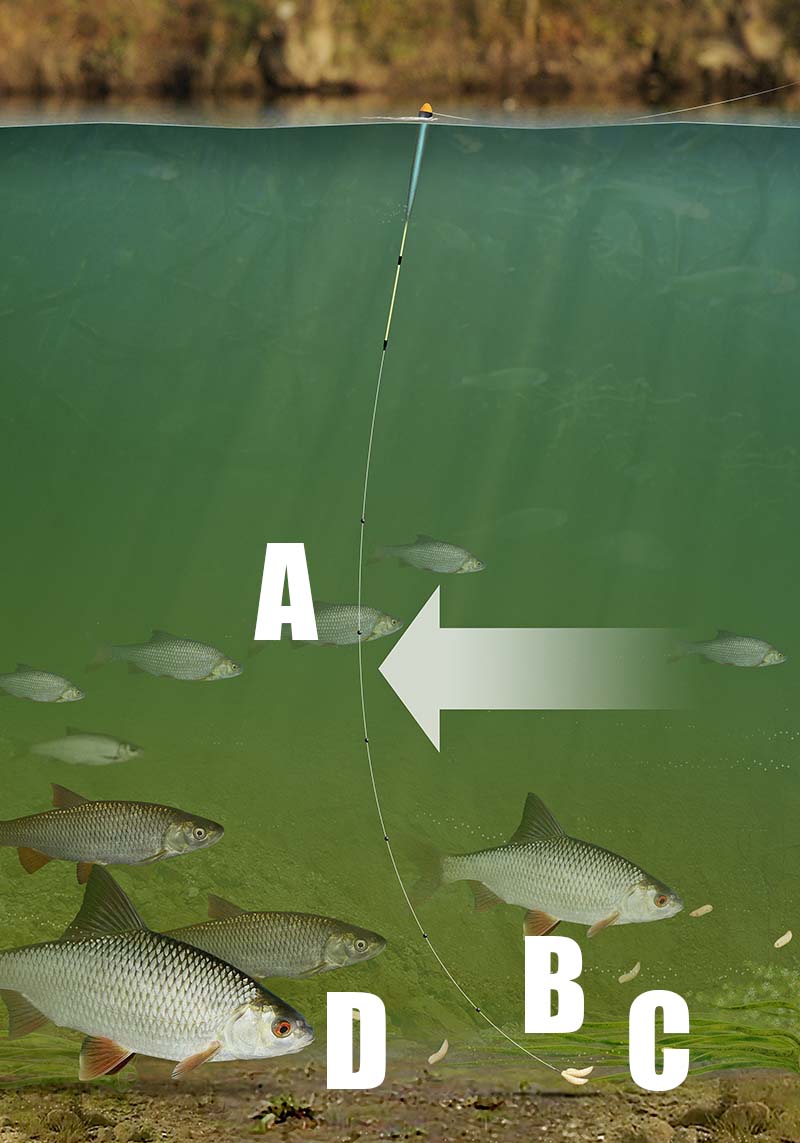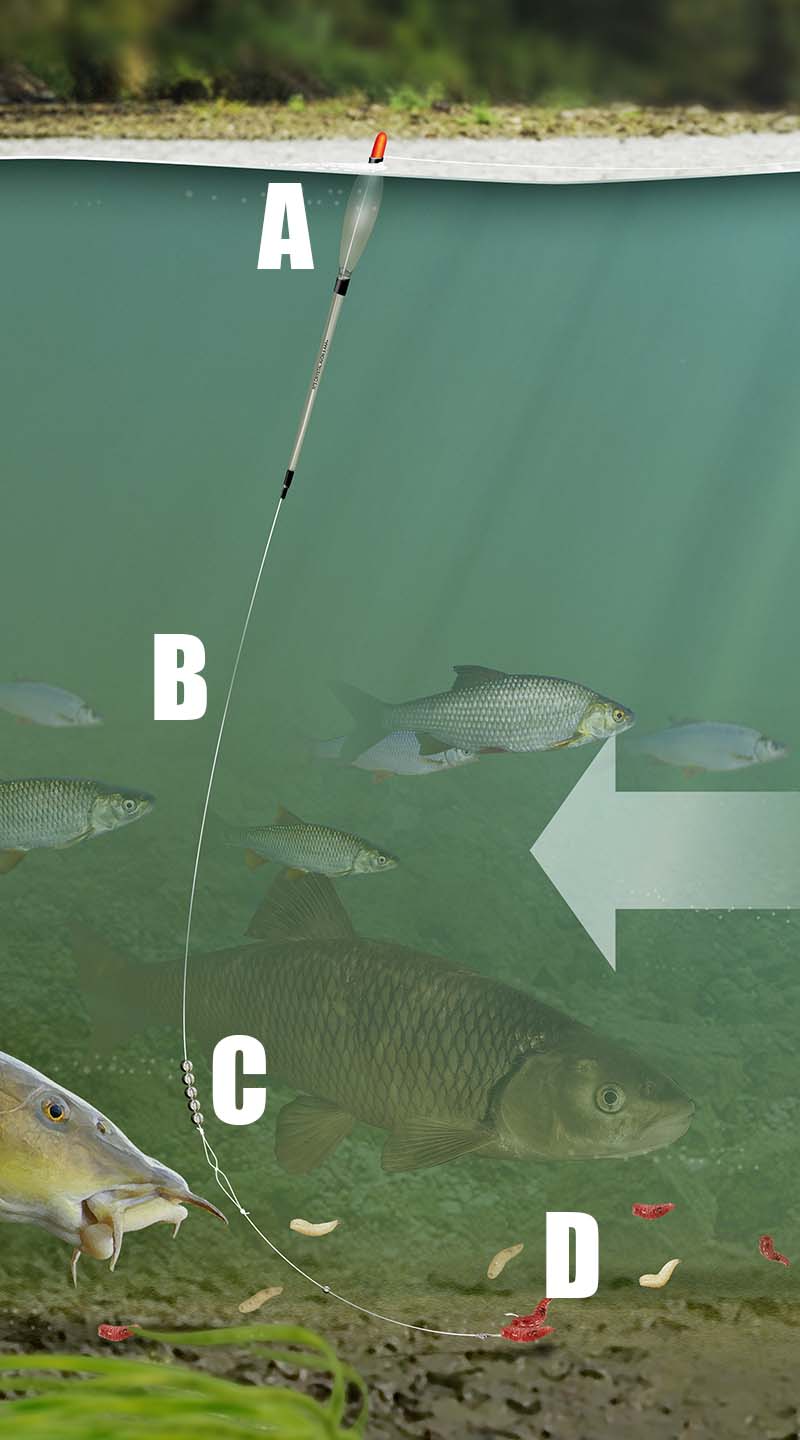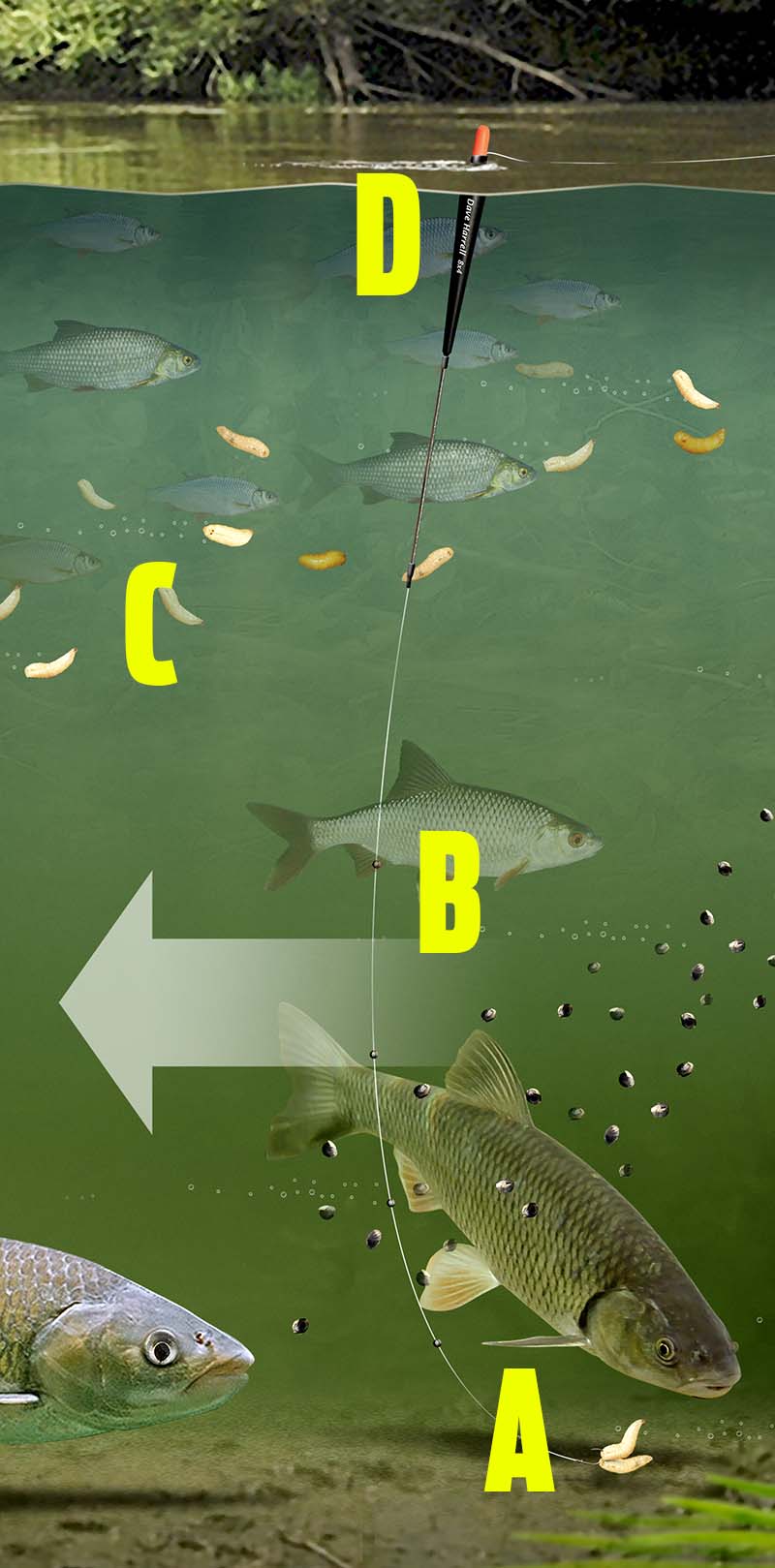The safe bolt rig
Semi-fixed bolt rigs have become common in modern angling techniques, not just for those targeting carp, but for anglers chasing many other species too.
When a fish moves off with the hookbait, with the lead semi-fixed in place, it soon comes up against the full resistance of the weight and either hooks itself or bolts away giving unmissable bites.
Although originally developed for carp fishing, the rig is just as useful for tench and bream in stillwaters, and barbel and chub in rivers. Various baits can be used, from boilies and pellets to worms and maggots. The key, though, is to ensure that the hookpoint is exposed so that there is the greatest chance of it pricking the fish.
In the event of a line breakage, it is essential that the lead should be able to slide free from the rest of the rig to avoid tethering a fish that has been hooked. To do this, a lead safety clip should be used with the tail rubber lightly pushed on to the clip so that the lead can come free with the minimum of effort. Follow these simple steps below and you will create the perfect safe bolt rig set-up.
Thread a tail rubber and safety lead clip on to your mainline. Ensure it will slide off easily
Tie a rig swivel to the end of the mainline using a four-turn grinner knot or palomar knot
Pull the lead clip over the swivel and use the supplied pin to hold the clip on to the swivel
Attach the lead to the clip and lightly push on the tail rubber. Test that the lead ejects easily
Attach your hook using a knotless knot. The hooklink should be weaker than the mainline
Tie the end of the hooklength to the rig swivel using a four-turn grinner knot







